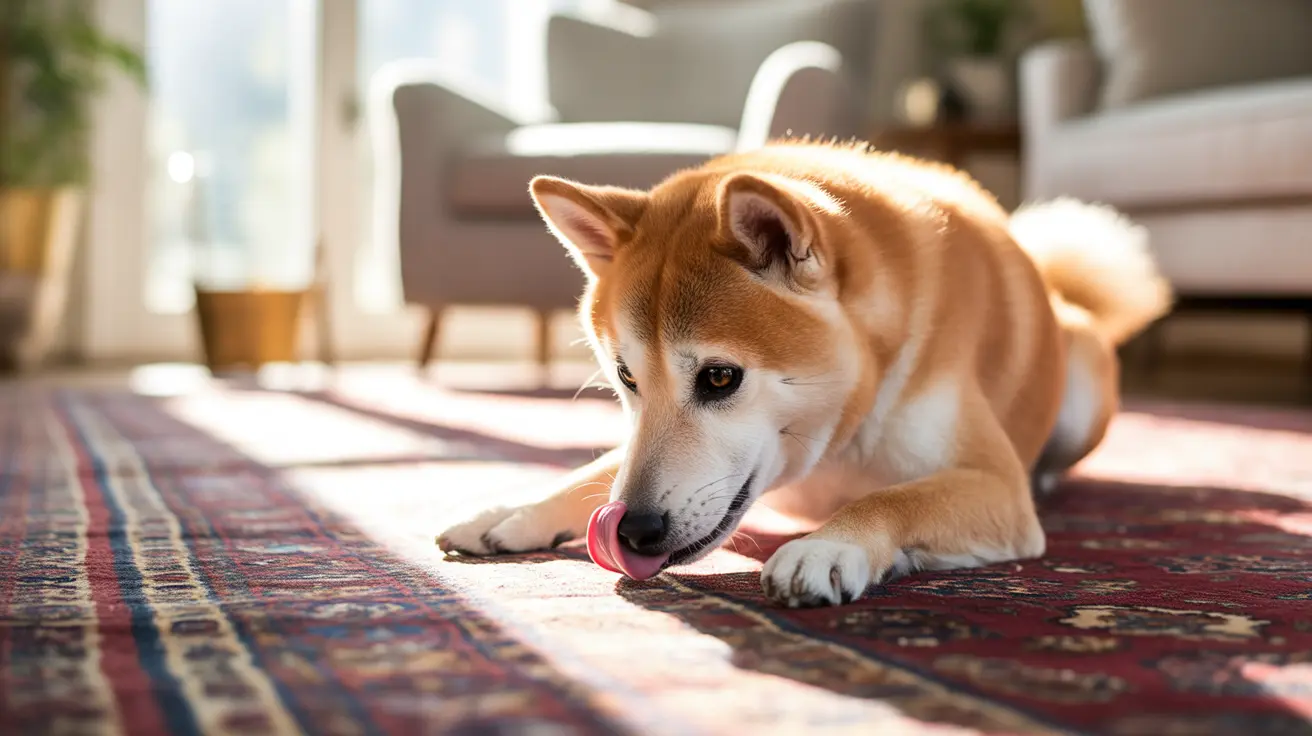Medical Causes Behind Carpet Licking
Gastrointestinal Issues
One of the most common medical reasons dogs lick carpets is gastrointestinal distress. Dogs suffering from nausea, acid reflux, or gastritis may engage in excessive surface licking as a coping mechanism. This behavior is often accompanied by frequent swallowing, drooling, and eventual vomiting.
Neurological and Endocrine Disorders
Sometimes, carpet licking can indicate underlying neurological conditions or endocrine disorders. If your dog suddenly develops this behavior or shows other unusual symptoms, it's essential to consult with your veterinarian for proper evaluation.
Behavioral Reasons for Carpet Licking
Stress and Anxiety
Dogs often turn to repetitive behaviors like carpet licking when experiencing anxiety or stress. This self-soothing mechanism releases endorphins, providing temporary relief from emotional distress. Major life changes, loud noises, or separation anxiety can trigger this behavior.
Boredom and Lack of Stimulation
Understimulated dogs may resort to carpet licking as a way to entertain themselves. This behavior often indicates a need for more physical exercise, mental stimulation, or social interaction.
Environmental Factors
Food and Scent Attraction
Sometimes, the simple presence of food particles or interesting scents in the carpet can trigger licking behavior. Regular carpet cleaning and limiting access to areas with food spills can help reduce this type of licking.
Exploratory Behavior
Dogs naturally explore their environment through taste and smell. Occasional carpet licking might simply be your dog's way of investigating their surroundings.
When to Be Concerned
While occasional carpet licking might be normal, certain signs warrant immediate veterinary attention:
- Excessive or compulsive licking that can't be interrupted
- Accompanying symptoms like vomiting or diarrhea
- Sudden onset of intense licking behavior
- Signs of pain or distress
- Changes in eating or drinking habits
Prevention and Management Strategies
To address carpet licking, consider implementing these solutions:
- Increase daily exercise and mental stimulation
- Provide appropriate chew toys and licking mats
- Maintain a consistent daily routine
- Keep carpets clean and free of food residue
- Consider anxiety-reducing techniques or products
- Work with a veterinarian to address any underlying medical issues
Frequently Asked Questions
Why does my dog lick the carpet excessively and could it be a sign of illness?
Excessive carpet licking can indeed signal various health issues, including gastrointestinal problems, anxiety, or neurological conditions. If the behavior is frequent or accompanied by other symptoms, consult your veterinarian for proper diagnosis.
How can I tell if my dog's carpet licking is caused by anxiety or boredom?
Anxiety-related licking often occurs during stressful situations or changes in routine, while boredom-induced licking typically happens when the dog lacks physical and mental stimulation. Observe the timing and context of the behavior to determine the cause.
Could my dog's medication cause them to lick the carpet more often?
Yes, certain medications, particularly steroids, can increase hunger and cause gastrointestinal discomfort, potentially leading to increased carpet licking. Discuss any concerns about medication side effects with your veterinarian.
What should I do if my dog licks the carpet and shows signs like drooling, vomiting, or itching?
These symptoms could indicate a serious medical condition. Schedule a veterinary appointment immediately, and document the frequency and circumstances of these behaviors to help with diagnosis.
How can I help reduce my dog's carpet licking caused by allergies or digestive issues?
Work with your veterinarian to identify and treat underlying allergies or digestive problems. This may involve dietary changes, medication, or environmental modifications. Additionally, provide appropriate alternatives like licking mats or puzzle toys.






